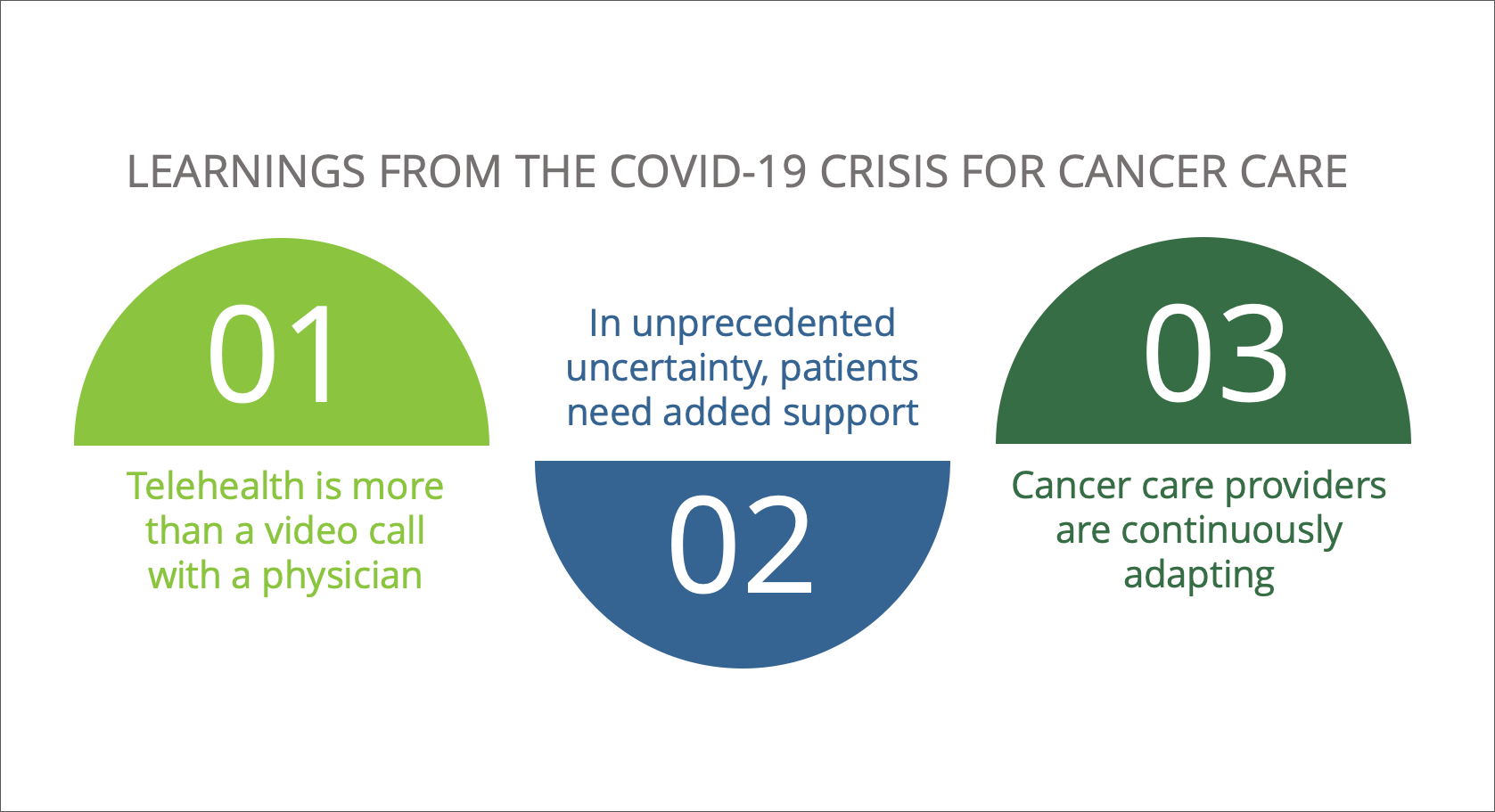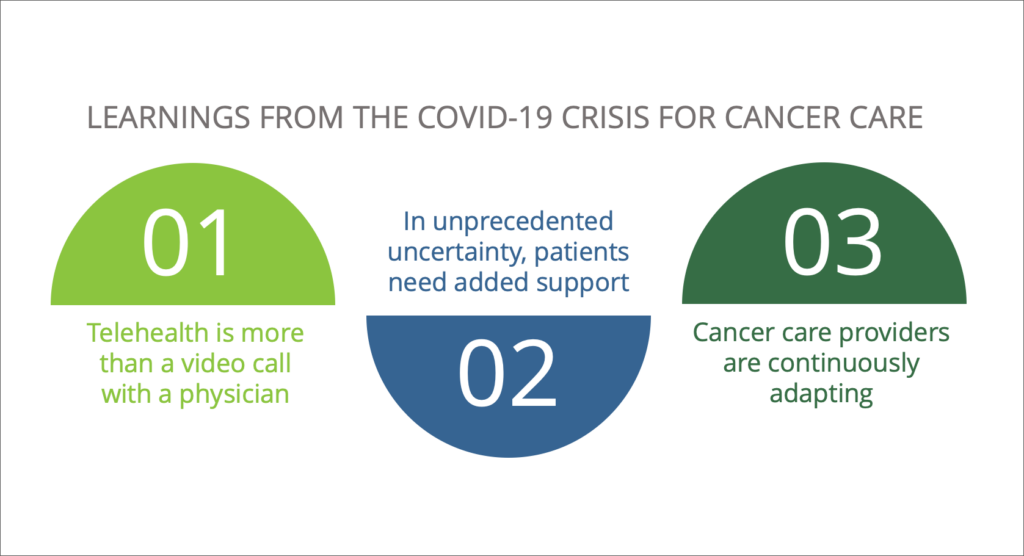The Association for Value-Based Cancer Care has been hosting a series of webinars around the theme of COVID-19 recovery. Speakers representing managed care payers, comprehensive cancer care centers, community cancer centers, and others have shared their viewpoints on a variety of topics including telehealth and its role in cancer care, the impact on deferred preventive screenings, the financial impact of the pandemic, and more.
Panelists representing community cancer centers brought a unique perspective to the discussion. At the beginning of the pandemic, community cancer centers were on the front line for cancer care. As hospitals and health systems were overwhelmed with COVID-19 patients and couldn’t safely care for cancer patients, community cancer centers stepped up. They quickly adapted, making swift operational changes, and stayed open to ensure all cancer patients received the care they needed.
In April, I shared a recap of the Community Oncology Alliance’s virtual summit that was almost exclusively focused on the COVID crisis and how cancer care providers were responding. While many of the topics were similar to discussions now – telehealth, payment reform, future implications – leaders can now reflect on lessons learned and think about the path forward.

3 takeaways for community cancer care
1. Telehealth is more than a video call with a physician. Cancer programs need a comprehensive telehealth strategy that provides cancer care in a holistic way to all patients including telephone triage, virtual support groups, and remote patient monitoring. In person visits are still needed, but leveraging technology has significant advantages for things like including family members in important discussions via telehealth, sharing critical information regarding oral oncolytics when treatment is selected, and assisting patients with symptom management at home.
2. In unprecedented uncertainty, patients need added support. Patients are already dealing with the trauma of cancer and now they have new fears – can I see my grandchildren, is it safe to come into the clinic for a screening, is it ok to exercise, how do I manage new anxieties. Debra Patt, M.D., PHD, MBA of Texas Oncology described the virtual support groups they have added that are continually at capacity. Communication has never been more important to not only ease fears, but to encourage screening and help patients stay on therapy.
3. Cancer care providers must continue to adapt. From uncertainty around reimbursement after the public health emergency to new learnings about COVID-19, it’s not easy to predict the future. CMS has indicated that telehealth is here to stay, but there are still questions about telephonic-only visits and other considerations. Social distancing, screening for COVID exposure, new cleaning procedures, and other environmental changes are also likely here to stay, and many are looking at those as positive changes. Delayed screenings are likely going to result in increased patient volumes down the road with more advanced cancers, but providers are ready to face what comes next and continue to serve patients.
Leverage technology to provide holistic cancer care
Cancer care was already complicated and providers work hard to provide holistic cancer care – much of which they are not reimbursed for: support for mental health, dietary guidance, ongoing education, symptom management, and more. Technology can help automate many aspects of the high tough, high quality care – screenings for distress, personalized information, electronic patient-reported outcomes programs to deliver proactive care, and online peer support.
Navigating Cancer’s patient relationship management platform is helping cancer programs across the country deliver excellent cancer care at scale.
Interested in learning more about our digital health platform?
